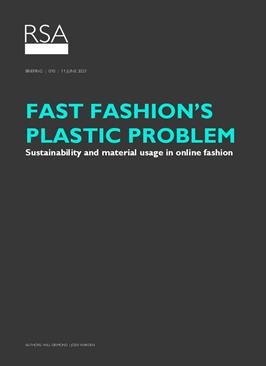In recent years a number of fashion brands have stated their commitment to investing in sustainable fashion. We analysed over 10,000 items of clothing from across some of the UK’s leading fast fashion brands to see if any progess has been made.
Over the past few decades, fast fashion has boomed. We now buy more clothing than we ever have. The way we shop has changed dramatically too, and what was once the domain of the high street has shifted online with new companies and brands overtaking, and even buying up, traditional players in the industry.
This meteoric growth has not come without issues. Fast fashion brands have come under fire for their poor social and environmental records, and dire working conditions have been exposed in the UK and further afield. The extraordinary impact of today’s fashion industry across waste, water, soil and air pollution is well documented.
To shed some light on this issue, we analysed over 10,000 items of clothing from across some of the UK’s leading fast fashion brands. We found:
- Fast fashion is awash with new plastics – with as much as 88% of recently listed items containing new plastics on some websites.
- Online stores have been slow to adopt recycled materials in their clothing – for some stores just 1% of items contain recycled materials.
- Fast fashion shoppers may not be aware of the amount of plastics they are buying. Previous RSA research suggests just half of those who shop at fast fashion websites say they regularly buy clothes containing synthetic materials, despite plastics being highly prevalent in online stores.
- These companies are ‘greenwashing’ their images by producing small sustainable ranges, while the bulk of their output is still made from petrochemicals.
- Some companies have a mountain to climb if they are to meet their own sustainability targets.
pdf 364.1 KB
Authors


Related articles
-
Rethinking Fashion
Blog
Josie Warden Rebecca Ford
A 4-month learning journey with 12 creative ventures to accelerate the transition to a circular future for fashion.
-
How to break your fashion addiction in 2020
Blog
Josie Warden
What drives us to buy fashion? And in a climate crisis, how do we tackle our consumption guilt and change our relationship with what we wear?
-
Three ways to engage students in circular design
Blog
Nat Ortiz
Nat Ortiz shares insights from a series of workshops with design students to explore fashion in a circular economy.



